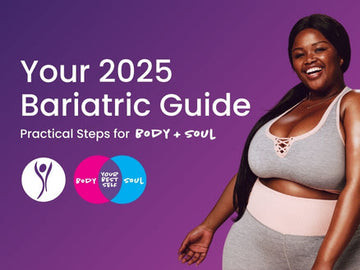by Anthony Benjamin on Oct 12, 2022

7 Easy Ways You Can Reduce Inflammation
 Your body is an
incredible machine that protects itself from harm and illness. If you were to catch a cold
or sprain your ankle while exercising, your body will automatically begin taking charge to
fight the infection or make the necessary repairs so you can get back on your feet again.
This often happens through inflammation, a naturally occurring process that launches white
blood cells, immune cells, and cytokines to aid the body in healing. When inflammation
becomes chronic, however, it can do more harm than good and lead to a myriad of health
problems later on. Here’s the thing: you have the power to stop it before it gets out of
hand. Learn more about some ways you can easily reduce inflammation in your body.
Your body is an
incredible machine that protects itself from harm and illness. If you were to catch a cold
or sprain your ankle while exercising, your body will automatically begin taking charge to
fight the infection or make the necessary repairs so you can get back on your feet again.
This often happens through inflammation, a naturally occurring process that launches white
blood cells, immune cells, and cytokines to aid the body in healing. When inflammation
becomes chronic, however, it can do more harm than good and lead to a myriad of health
problems later on. Here’s the thing: you have the power to stop it before it gets out of
hand. Learn more about some ways you can easily reduce inflammation in your body.
What Causes Inflammation?
When your body’s cells are damaged through injury, infection, or any type of trauma, immune cells called leukocytes arrive on the scene to fix the problem through an inflammatory response. Sometimes, however, inflammation will occur when no injury or illness is present; this typically happens when your body is in a constant state of alert and is being called into action continuously. Inflammation can also be caused by obesity-related diseases such as diabetes and cardiovascular disease. Left unchecked, this chronic inflammation can lead to a variety of health problems and degenerative diseases, including arthritis, Alzheimer’s disease, autoimmune conditions, heart disease, obesity, diabetes, cancer, and more.
Some of the main culprits of inflammation include the following:
- Alcohol
- Chronic stress
- Eating processed foods and foods high in sugar and unhealthy fats
- Exposure to chemical toxins
- Lack of sleep
- Smoking
Signs You May Be Experiencing Increased Inflammation
If you’ve been experiencing the following symptoms for a longer period of time, you
could be experiencing inflammation in your body:
- Brain fog, memory impairment, and concentration difficulties
- Digestive issues including gas, bloating, diarrhea, and constipation
- Fatigue
- Frequent headaches or migraines
- High blood sugar
- Joint pain
- Mood disorders such as anxiety or depression
- Skin issues such as eczema or psoriasis
- Weight gain, especially around the middle
How You Can Reduce Inflammation in Your Body
When people feel pain in their bodies, they typically reach for non-steroidal
anti-inflammatory drugs (NSAIDs) to reduce inflammation, swelling, pain, fever, and more.
However, bariatric patients need to steer clear of using these medicines due to an increased
risk of developing ulcers. After weight-loss surgery, ulcers become much more difficult to
diagnose and treat. Fortunately, there are plenty of other ways you can reduce inflammation
in your body without the help of NSAIDs. Here are some of our favorites:
- Clean up your diet: Inflammatory foods like processed foods, fast food, and anything with a high amount of sugar and unhealthy fats will cause your body trouble (and will give it little to no nutrition to boot). Do what you can to greatly reduce or cut out these types of food from your diet.
- Get plenty of good sleep: Did you know that even one poor night of sleep can increase inflammation in your body? It’s important to get plenty of shut-eye each night! If you’re having difficulties with sleeping, clean up your bedtime hygiene habits a bit: sleep in a dark, quiet room, avoid looking at screens for an hour before bedtime, and go to bed at a consistent time.
- Manage your stress: Where there is stress, inflammation will follow. Do everything possible to maintain a healthy work/life balance to properly manage your stress. Don’t forget to spend time with your loved ones, exercise, laugh at funny videos, and practice self-care each day, especially on those particularly stressful days. Even a support group can be a big help!
- Eat whole, organic, anti-inflammatory foods: Food is medicine for the body! Make sure you eat plenty of nutrient-dense foods that contain antioxidants, which combat harmful free radicals in the body. Eat plenty of vegetables, fruits, nuts, legumes, and fatty fish. Foods that are even more helpful with fighting inflammation include blueberries, strawberries, tomatoes, leafy greens, almonds and walnuts, olive oil, and fish that are high in omega-3 fatty acids (think tuna, mackerel, and salmon).
- Exercise regularly: Whether you love speed walking, swimming laps, playing tennis with your best friend, or dancing to your favorite music, make sure you get enough exercise in your day! The CDC recommends exercising at least 5 times a week for a minimum of 30 minutes to get the greatest benefit.
- Avoid toxins: It’s amazing how many toxins we come into contact with each day without realizing it. Take a look at your cookware, cosmetics, personal hygiene products, cleaning products, and more. You’ll want to avoid anything that has bisphenol A (BPA), phthalates, formaldehyde, sodium lauryl sulfate (SLS), and others. You can learn more and find healthier alternatives here!
- Take care your microbiome: A healthy gut equals a healthier you! Probiotics can assist with various health conditions, many of which can be lifelong issues for weight-loss surgery patients, such as irritable bowel syndrome (IBS), skin conditions, and much more. A probiotic supplement helps strike a healthy balance. Check out our newest Probiotic + Bariatric Multivitamin to give you the nutrients your body needs at an affordable price!
Trust ProCare Health to Keep You on Track
Along with our Probiotic + Bariatric Multivitamin, ProCare Health has a variety of bariatric vitamins that you can add to your routine. Developed by bariatric doctors and dietitians, our multivitamins provide you with an affordable solution to get your body the nutrients it craves. Take one once daily to avoid setbacks from bariatric surgery like vitamin deficiency and malnutrition!

Your 2025 Bariatric Guide: Practical Steps for Body + Soul

Your Go-To Guide for Bariatric-Friendly Travel

Exploring the Impact of Weight Loss on Bone Density

